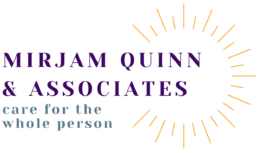Humans are inherently social beings. From early tribal societies to modern neighborhoods and online groups, our well-being has always been tied to our connections with others. A strong sense of community — the feeling that you belong to a supportive network of people who share mutual care and understanding — plays a crucial role in maintaining good mental health. Emerging neuroscience and psychology research continues to uncover why these connections matter so deeply and how they influence our brains and emotions.
The biological basis of belonging
When people experience social connection, the brain releases chemicals like oxytocin, dopamine, and endorphins — the same neurotransmitters linked to trust, reward, and pleasure. Oxytocin, often called the “bonding hormone,” helps reduce stress and anxiety while enhancing empathy and cooperation. Similarly, dopamine and endorphins reinforce feelings of happiness and motivation, encouraging us to seek out more positive social interactions.
On the flip side, social isolation triggers the body’s stress response. Levels of cortisol, the primary stress hormone, rise, which over time can lead to increased anxiety, depression, and even physical health issues such as weakened immunity or heart disease. Studies show that people who feel disconnected are more prone to these stress-related problems, while those who feel part of a community often demonstrate better emotional resilience.
The role of mirror neurons in connection
One fascinating aspect of the science of belonging lies in the mirror neuron system, a network of brain cells that fire both when we perform an action and when we see someone else perform that same action. Discovered in the 1990s, mirror neurons help explain why emotions can be contagious — why we might feel happy when surrounded by joyful people, or uneasy when others are tense.
These neurons play a crucial role in empathy and understanding others’ experiences. When we witness someone smiling, laughing, or showing compassion, our mirror neurons activate similar emotional pathways in our own brains. This biological resonance reinforces social bonds, deepens understanding, and makes shared experiences — such as group activities or community events — psychologically rewarding. In essence, mirror neurons create a neurological bridge between individuals, helping to transform groups of people into genuine communities.
How community strengthens mental health
A sense of community provides more than emotional comfort. It offers a network of social support, which can buffer against stress, reduce loneliness, and foster purpose. When individuals feel that they matter to others and that others will be there in times of need, they are less likely to experience depression and anxiety. Moreover, belonging to a group gives people a sense of identity and shared meaning, two psychological needs crucial for mental well-being.
Five ways to strengthen your sense of community and belonging
- Participate in local events: Attend neighborhood gatherings, cultural festivals, or volunteer opportunities to meet people and build shared experiences.
- Practice active empathy: Listen attentively, show understanding, and reflect others’ emotions — engaging your mirror neurons in positive connection.
- Join or form interest groups: Whether it’s a book club, hiking group, or online forum, shared passions create strong social bonds.
- Offer help and ask for help: Mutual support strengthens trust and reinforces feelings of being valued within a community.
- Create micro-connections daily: Smile at a neighbor, chat with a barista, or thank a coworker — small acts of recognition nurture belonging.
Ultimately, our brains are wired for connection. Cultivating a sense of community doesn’t just feel good — it’s a deeply biological necessity that keeps our minds healthy, resilient, and full of life.


